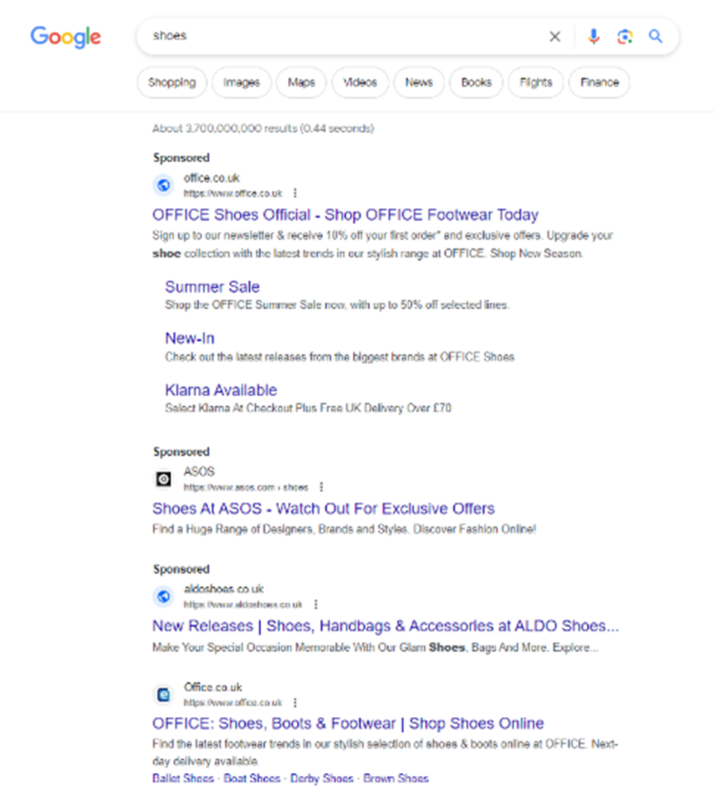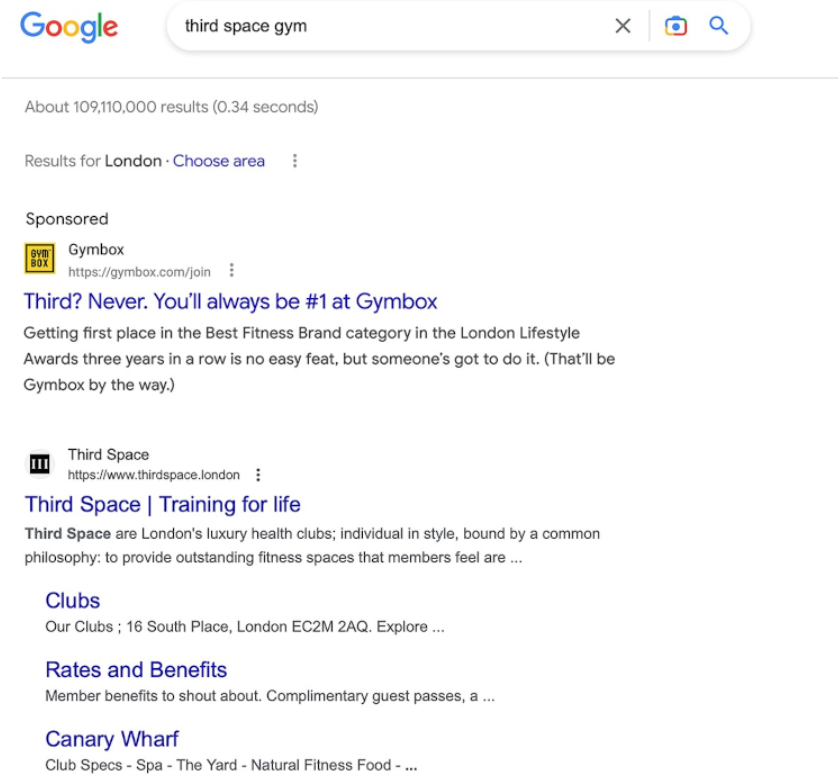By Camilla Hay, Senior Digital Account Executive
My friend recently sent a screenshot highlighting that she had been shown an ad for a brand she had previously searched for. She thought it was silly and couldn’t understand why she needed to be shown an ad for something she was actively searching for anyway. So, this got me thinking, as there are many reasons for it, enough for an article, in fact!
Therefore, I will use this article to discuss why it’s sometimes important and worthwhile to bid on your brand terms. Google’s rules are ever-changing, and a more recent shift towards broad and phrase match is generating an increased risk of competition. These shifts make this discussion increasingly relevant each year.
Firstly, it’s worth reminding those of you who are less familiar with what it means to bid on terms on paid search. Essentially, every search you make on a search engine such as Google is likely to have an auction in the background for the best spot in the search results. You’ll notice that some results will say “sponsored” next to them, and this highlights that money is being bid on the keyword you have searched (or a match of) to get that spot on your screen. The more you bid, the more likely you are to show on the first page of the results. The more competition there is, the more you’ll need to bid to get that top spot.

You may still wonder why you need to bid on your brand terms. One of the most important things to highlight is that it is highly likely that competitors will be bidding on your terms. Therefore, if you are not bidding, their search results may appear higher than yours, and users may click on their site for what they’re looking for instead of yours. There are some great examples of competitors doing clever stunts with search advertising. This includes Gymbox, which has recently run search ads against competitor searches. For example, a search for “third space gym” would return a Gymbox ad with copy “Third? Never. You’ll always be #1 at Gymbox.” With recent changes to Google’s use of AI, and the introduction of capabilities such as Performance Max, this competition risk grows daily.

Linking to the previous Gymbox example, paid search is an excellent way to have more control over how your brand is displayed in search results. Not only can you tailor the headline of your search result, but you also have control over additional site links (directing users to specific sites on your page), image extensions and so on, which can help you grab the attention of searchers as they scroll. Google processes more than 8.5 billion searches daily, steadily increasing YoY since 1998. Statistics like this again highlight the competitive landscape of search today and the need to think carefully about how your search results portray your brand.
Another key point is that search can be a great way to mop up delayed conversions from paid and organic social activity. When we’re shown an ad from paid social activity, we’re encouraged to take action but are not in a position to do so right that second. For example, you want to buy those shoes, but your debit card is upstairs, and the moment has passed. You then think about those shoes again but no longer have the ad or content in front of you. You will likely go on to the search engine of your choice to find the brand and item. As the advertiser, if you have bid on your brand terms, you can be more confident that these scenarios will lead the user to your site. If you don’t, they may be presented with a competitor ad and find an alternative on their site instead.
Furthermore, with the depreciation of cookies in 2023 and beyond, it is increasingly important to be able to look at attribution across all channels. Utilising Google as part of the funnel will ensure advertisers can own the conversions they’ve driven. That said, there are some instances where you may choose not to bid on your brand terms. For example, if you’ve got a particularly high-quality search engine optimisation, if no competitors are bidding on your brand terms or if your budgets are limited.
To conclude, and to answer the question, “Why should I bid on my own brand terms?” the key factor which has cropped up throughout this campaign is competition. With the increasing shifts in Google’s AI and the rising numbers of search engine users, it is becoming ever more important to put strategies in place to ensure you are competitive on these platforms. Whilst it’s not always the case, often bidding on your brand terms can be a good initial step in ensuring you hold onto your share of voice as well as market share via the search engines.
References:
https://mobilemarketingmagazine.com/gymbox-launches-paid-search-conquesting-campaign
https://www.lbbonline.com/news/gymbox-takes-on-other-fitness-gyms-with-cheeky-google-ads
https://searchenginehubbub.com/google/google-ads/automatically-created-assets/
